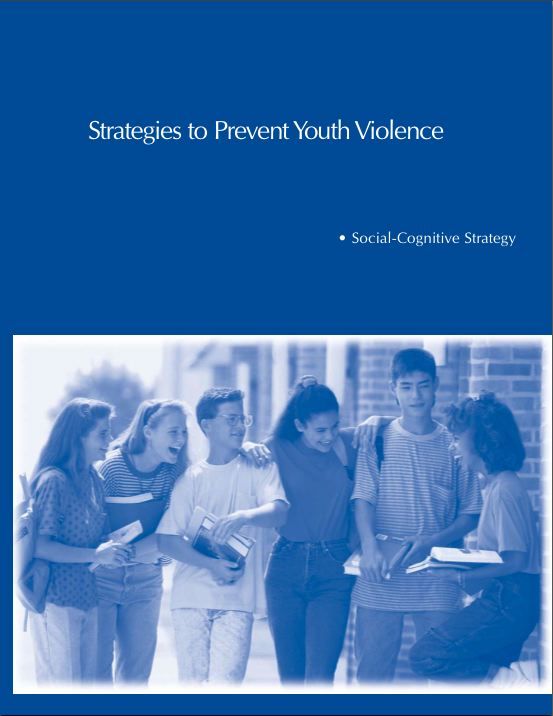Strategies to prevent youth violence
Strategies to prevent youth violence
92-page pdf chapter from “Best Practices of Youth Violence Prevention: A Sourcebook for Community Action,” which investigates “Social-cognitive interventions strive to equip children with the skills they need to deal effectively with difficult social situations, such as being teased or being the last one picked to join a team. They build on Bandura’s social-cognitive theory, which posits that children learn social skills by observing and interacting with parents, adult relatives and friends, teachers, peers, and others in the environment, including media role models (Bandura 1986). Social-cognitive interventions incorporate didactic teaching, modeling, and role-playing to enhance positive social interactions, teach nonviolent methods for resolving conflict, and establish or strengthen nonviolent beliefs in young people … Mentoring—the pairing of a young person with a volunteer who acts as a supportive, nonjudgmental role model—has been touted by many as an excellent means of providing a child or adolescent with a positive adult influence when such an influence does not otherwise exist. Evidence has shown that mentoring can significantly improve school attendance and performance, reduce violent behavior, decrease the likelihood of drug use, and improve relationships with friends and parents.”
- Format: pdf
- Publisher: Centers for Disease Control and Prevention
- Resource Release Date: 01/01/1999
- Topics:
- Subjects:
- Direct Access: Click Here

